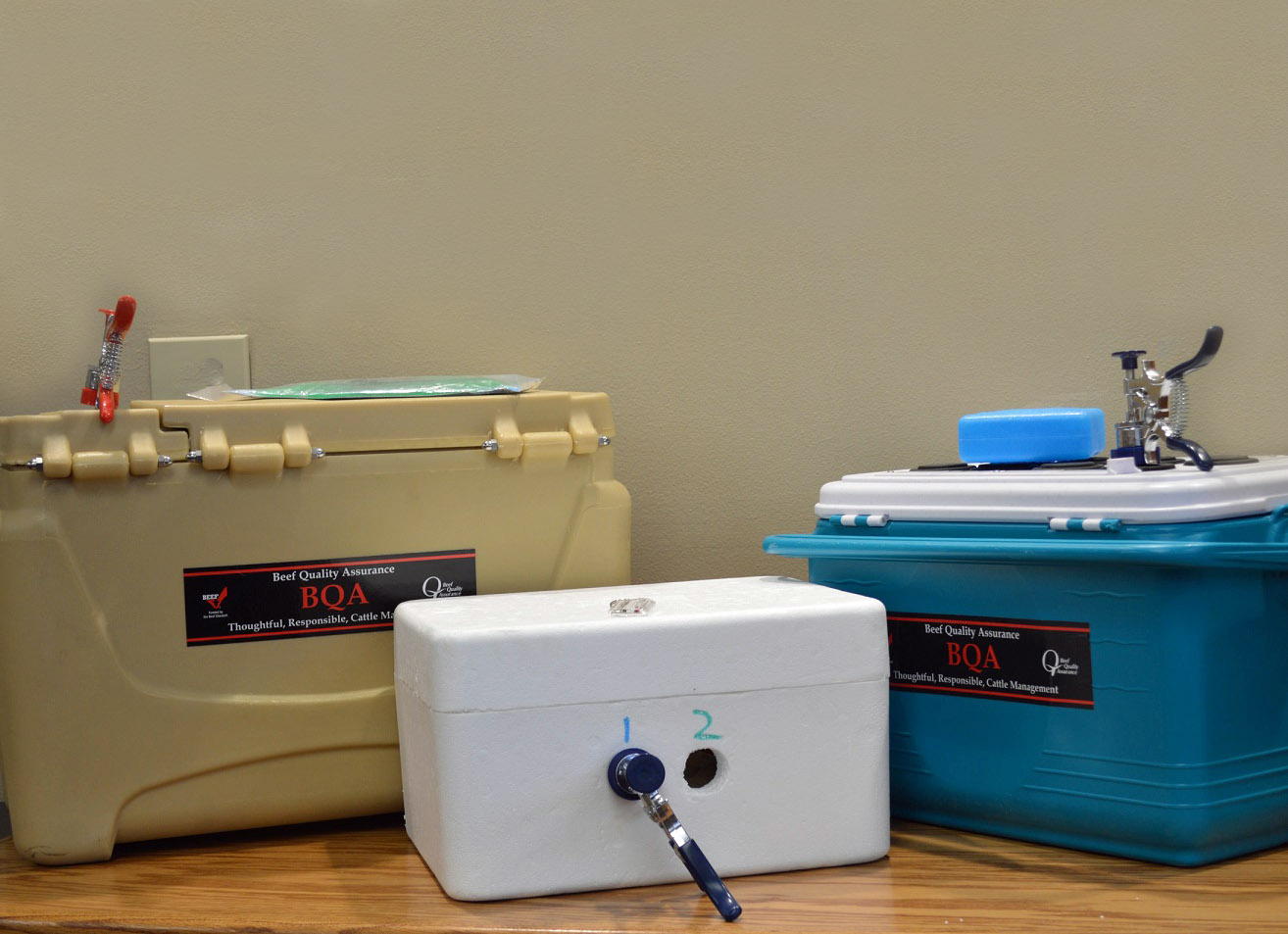
By Rob Eirich, Nebraska Extension Beef Educator and Director of Beef Quality Assurance
As the beef cattle industry focuses on stewardship in animal health and antimicrobial use, we are continually reminded to follow FDA Labels on all animal products. We understand the importance of strong vaccination programs, proper diagnosis and treatment, and the good stockmanship when handling livestock. The beef cattle community is committed to the best care and well-being of the animals entrusted into their care.
One thing that is many times overlooked with reading labels and handling the products used for prevention and treatment is proper handling and storage. All animal health products have storage and handling information on the FDA label whether vaccines or antimicrobials/antibiotics. It is important to take a minute to review these labels each time you use or purchase them.
When handling vaccines, keeping them out of sunlight and in cool storage (35° F – 45° F) is common practice. When you store them prior to use, you should check that your refrigerator is maintaining proper temperature within the storage range on the label. It is also recommended to store in the center of the cooling area and not the door racks due to routine opening and closing of the door. Purchasing a simple thermometer to check temperatures can be a valuable tool. When preparing to handle vaccines and use them, keep a cooler with ice packs to ensure the temperature while processing cattle. There are a few companies designing coolers for cattlemen with locations for syringes and needles plus a cool storage area for the product. You can also make your own with a styrofoam or small cooler drilling a hole for syringes.
Antimicrobials/antibiotics are many times overlooked when it comes to storage and handling. Most can be stored at room temperature, but that temperature can vary by product. Checking labels on seven antibiotics used in beef cattle, showed there were five different storage claims: 1) Below 77° F, 2) Below 86° F, 3) Between 68° F – 86 °F, 4) Between 59° F – 86° F, and 5) Between 59° F – 77° F. Producers can see the different ranges of storage temperatures so it is important to read and follow these labels to maintain effectiveness of the product when used judiciously for treatment. When transporting or carrying these products during routine livestock observation use appropriate coolers to maintain these temperatures. A small cooler with a cool pack might be the best.
In addition to storage, read and record lot numbers and expiration dates of all animal products in your inventory. When purchasing any animal health product consider the amount of product needed. Vaccines should be purchased as close to the amount needed as possible to insure the product doesn’t expire before administration. With antimicrobial, you need to consider the disease pressure or risk, and how many diagnosis and treatments you may encounter in a given period of time. This can be difficult as these risks are unpredictable, so visiting with your veterinarian under a Valid Veterinarian-Client-Patient Relationship is a first step. Purchasing smaller volumes might be the best for your operation insure product doesn’t expire before being used.
As a reminder always follow BQA guidelines and labels when administering animal products. All injectables should be administered in the neck using subcutaneous injection when possible, only administer 10 cc per injection location, use a clean syringe and needles, and always follow the FDA Approved Label.
For more information on Nebraska BQA visit: http://bqa.unl.edu.
To listen to BeefWatch podcasts go to: https://itunes.apple.com/us/podcast/unl-beefwatch/id964198047 or paste http://feeds.feedburner.com/unlbeefwatch into your podcast app.